ESA signs MoI with Veolia Energia Poland to accelerate sustainable development
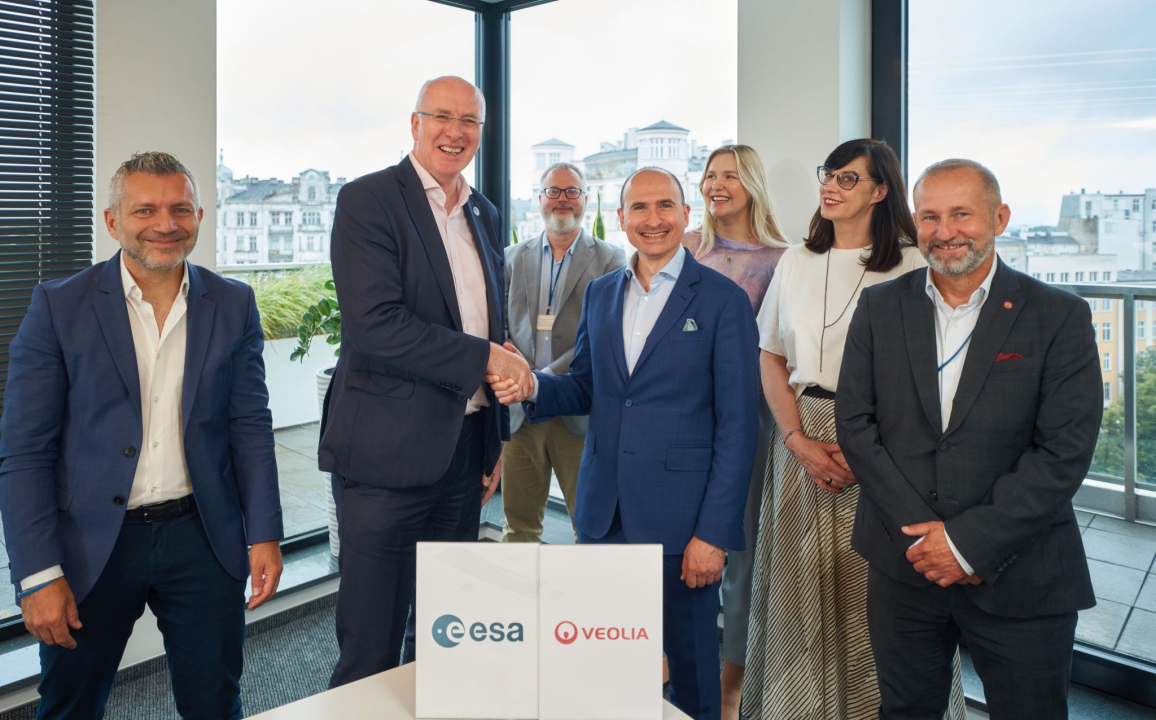
Veolia Energia Polska and the European Space Agency (ESA)’s Business Applications and Space Solutions (BASS) programme have signed a Memorandum of Intent (MOI), marking the beginning of a strategic collaboration to harness space technologies in support of sustainable development. The partnership aims to co-develop innovative solutions that accelerate decarbonisation, ecological transition, and digital transformation—particularly in the areas of energy, water, and waste management.
Through this cooperation, ESA and Veolia intend to explore the application of satellite technologies and downstream space services in sectors that are critical to the environmental resilience of European cities. The MOI outlines specific areas of joint activity, including the deployment of space-based innovations, co-organisation of initiatives, joint project promotion, and the exchange of knowledge and technical expertise.
"This collaboration introduces a new dimension in urban environmental management. ESA stands for technological excellence, while Veolia brings decades of operational know-how and a deep understanding of municipal systems. By combining these strengths, we can implement scalable, innovative, and environmentally responsible solutions," said Luiz Hanania, CEO of Veolia Poland.
Operating in Poland for over 25 years, Veolia Energia Polska currently serves 3 million customers across 123 cities and manages district heating networks in 58 of them. With 4,600 employees, the company delivers integrated services in heat production, energy efficiency, water management, and waste solutions. Its strategy is rooted in circular economy principles, sustainable development, and active support of local communities.
ESA is an intergovernmental organisation comprising 23 member states, committed to the peaceful development of space research, technology, and satellite applications. The BASS programme is a key vehicle for ESA’s engagement with industry and helps businesses from all corners of Europe to harness space technology to improve life on Earth. BASS supports the commercialisation of space-enabled services across multiple sectors including energy, transportation, agriculture, urban development and environmental protection.
"Our objective is to strengthen the resilience of cities and industries to climate-related challenges. Satellite technologies will allow us to monitor and analyse natural resources more effectively, identify energy losses, anticipate environmental risks, and optimise operational processes through the implementation of innovative technologies," emphasised Krzysztof Zamasz, Vice President of the Management Board at Veolia Poland.
Anna Kędziora-Szwagrzak, CEO of Veolia Energia Łódź, said "The cooperation between the Veolia Group and ESA is, for heating systems such as the Łódź one, a very innovative research and development area for the operation of technological infrastructure responsible for the security of the city’s supply of district heating and in this context its sustainable ecological transformation."
“The Polish economy offers a wide range of opportunities for innovation using space technologies,” said Nick Appleyard, Head of ESA’s BASS programme. “This cooperation with VEOLIA is significant and follows a series of MOI agreements between ESA and Polish entities in recent weeks, including the City of Łódź, Łódź Special Economic Zone and the Polish New Mobility Association. We are looking forward to working closely with our Polish partners to demonstrate how satellite technologies have a key role to play in addressing infrastructure challenges across multiple sectors.”
"Space offers tremendous opportunities to accelerate decarbonisation, ecological transition, and digital transformation - especially in critical sectors like energy, water, and waste management. Our collaboration with Veolia, backed by their credible innovation roadmap and strategy, opens a new dimension for developing impactful, sustainable space applications that directly address these pressing challenges," said Davide Coppola, Head of ESA's Space Applications Initiatives Section.
As part of the agreement, the partners plan to launch pilot projects, co-organise workshops and seminars, and collaborate on educational and awareness-raising initiatives showcasing the potential of space applications for environmental protection and urban infrastructure modernisation. Both parties also express their openness to cooperate with additional national and international stakeholders.
The MOI is valid for three years with the possibility of extension.




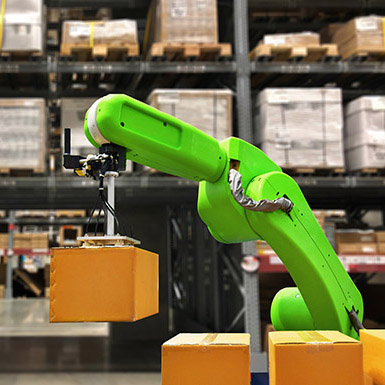
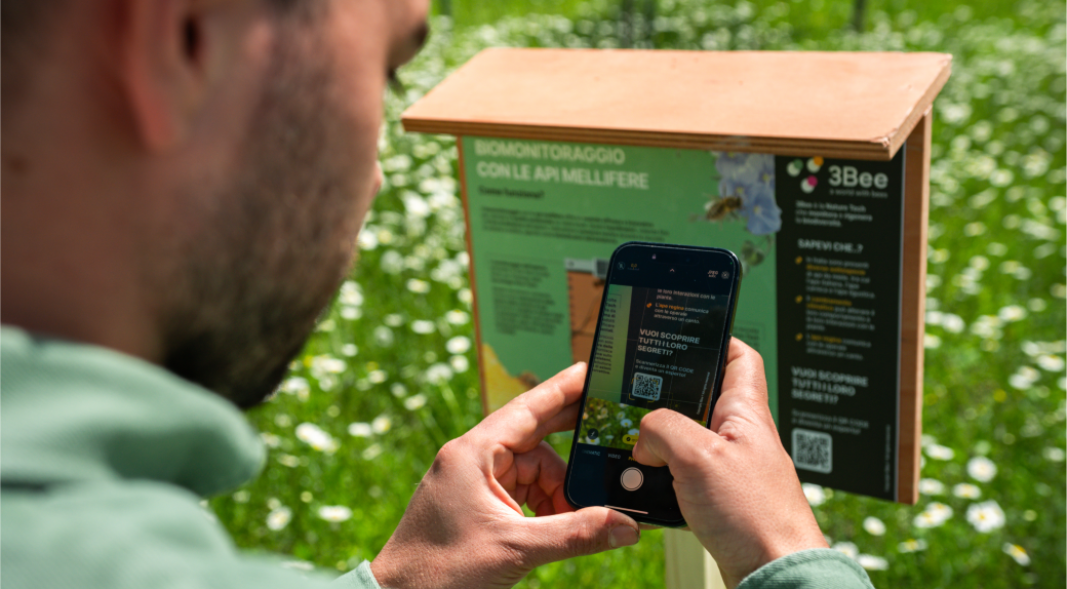
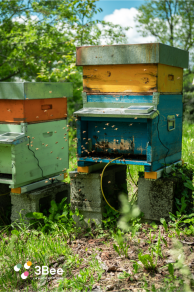 Beekeepers often face lengthy and costly efforts to locate high-nectar zones, forecast honey yields, and prevent colony starvation. In addition, many European countries have seen sharp declines in bee numbers, with severe colony losses linked to extensive pesticide use and inadequate management practices. Without proper nutrition, optimal migration routes and appropriate medical treatments, bee colony health remains at risk.
Beekeepers often face lengthy and costly efforts to locate high-nectar zones, forecast honey yields, and prevent colony starvation. In addition, many European countries have seen sharp declines in bee numbers, with severe colony losses linked to extensive pesticide use and inadequate management practices. Without proper nutrition, optimal migration routes and appropriate medical treatments, bee colony health remains at risk.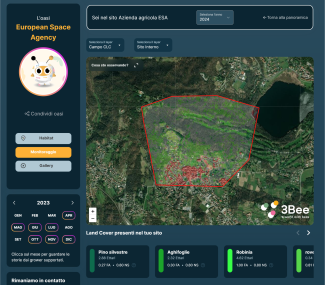 This data is automatically processed, saving both time and resources. Beekeepers benefit by improving their practices and reducing operating costs, with tools to predict income expectations and plan hive placements effectively. Farmers gain from enhanced pollination strategies, ensuring healthy bees are positioned near crops at the right time. These services enable successful pollination, increased yields and reduced use of chemical pesticides.
This data is automatically processed, saving both time and resources. Beekeepers benefit by improving their practices and reducing operating costs, with tools to predict income expectations and plan hive placements effectively. Farmers gain from enhanced pollination strategies, ensuring healthy bees are positioned near crops at the right time. These services enable successful pollination, increased yields and reduced use of chemical pesticides.